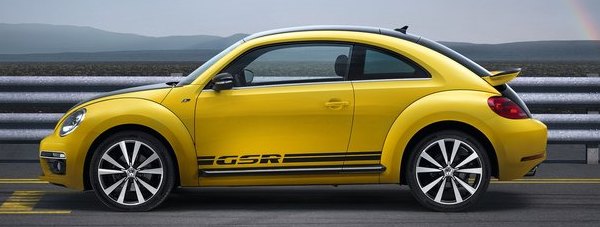|
2014
|
Porsche aims to build 1 million
cars a year
With the
introduction of Macan, Porsche is going to produce more than 200,000
cars this year, 5 times the number it sold just 15 years ago. No one
could have predicted a sports car maker could grow to such volume.
However, at Zuffenhausen, Porsche CEO Matthias Füller has already
started planning a new wave of expansion which will push its annual
volume beyond 1 million units. The plan is now under discussion among
its top management involving R&D, production and sales. If it gets
the greenlight, it will be put to implementation within the next 36
months and hopefully the sales target can be achieved by 2018.
The current line-up of
Porsche consists of 2 sports car lines, 2
SUVs, a large luxury sedan and a supercar. This mean further expansion
will inevitably calls for enterring other, more mainstream segments.
The new product plan centers on 4 new models. The first to be
introduced is
internally known as 911 Pickup, though it could be named as 911 Carrier
Spyder
to sound more romantic. Based on the current 991 Turbo S, its front
chassis will be replaced with an aluminum tray with immense
rigidity for loading heavy items. The extra front-end load will
actually improve its balance and allow the car to beat Nismo GT-R in
Nurburgring. To further sharpen its handling, the cargo tray will be
mounted to the front subframe via several magnetorheological adaptive mounts to
absorb road shocks and ensure the safe transport of fragile items. When
the tray is empty, it can be doubled as an active aero foil by
adjusting its incline angle. Expect it will easily generate more
downforce than McLaren P1. Porsche expects the
911 Pickup will be especially popular in the
Southern and Western states of USA.

Left:
928 Pickup was
the spiritual predecessor of 911 Pickup, though no where as radical as
the
latter; Right: Courrera GT Express will rival Ford
Transit.
The second model will be
called Pullman R, where R stands for Rural. It
is aimed to be the
world’s
fastest tractor to lap the farms outside Nurburgring. Hopefully it will
allow Porsche to enter a new market sector previously unthinkable.
It will be equipped with an improved Porsche Traction Management to
guarantee excellent towing capacity. Power will come from the 3.4-liter
flat-six of Cayman, detuned by 10 hp to avoid embarrassing the latter,
though you could opt for Sport Chrono
pack to restore the power. The Pullman R is expected to sit between
the
base Cayman and a farming ox.
The third model will be
Courrera GT Express, a performance bread van
rivaling Ford
Transit. To meet customer demand for excellent fuel economy, it
will be powered by the 2.0-liter V4 engine and dual energy recovery
system of 919 Hybrid, just converted to transversely mounting at the
nose. The label “GT” stands for “Grand Transport”, implying its
spacious cargo compartment. A “Weissach” pack will be offered to trim
its weight by 0.01%. This includes a lightweight polymer film with
Martini, Maotai
or Wuliangye livery
wrapping the body. The latter two will be
popular in the Chinese market.

Mass
production baby
Porsche will be derived from Beetle GSR
The last and also the
most important model will be a Golf-size mass
market model, preliminarily known as “New 356” as it is derived from
Volkswagen Beetle like the original 356. The car will be based on the
911-looking Beetle GSR. As a revenge, Zuffenhausen will make it
look like a Volkswagen, such as offering apple green paint and
replacing the turbo boost gauge with a vase. Hopefully it will steal a
lot of sales from VW. Most of the mechanicals will be sourced from
Volkswagen’s parts bin but thoroughly renamed to reflect its premium
status and narcissism, such as the Porsche Doppelkupplung (aka
DSG), Porsche Traction Management (aka 4motion), Porsche Torque
Vectoring (aka XDS electronic differential lock), Porsche Active
Suspension Management (aka DCC dynamic chassis control), Porsche
Cup Holders, Porsche Door Handles, Porsche Windscreen Wipers, Porsche
blahblahblah… Power unit will be
made of 2 Volkswagen Up 3-cylinder motors mated at a common crankshaft
to form a 2-liter flat-six, like the early 911.
Porsche doesn't afraid
the high production volume and high level of
component sharing would hurt its exclusive image, if there is any left
since the birth of Cayenne. After all, there are plenty of fools out
there
want to
buy Porsche just for the sake of its badge. 1 million sales could be
too conservative! |
|

|

